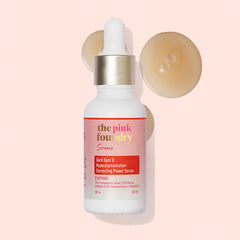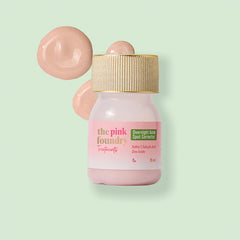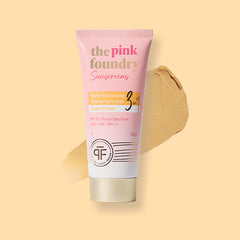What is Sorbitol?
Sorbitol is a polyol, or sugar alcohol, that is commonly used as a humectant and moisturising ingredient in various cosmetic and personal care products. Humectants are substances that attract and retain moisture, helping to keep the skin hydrated and supple. While moisturising the skin, it also helps in maintaining an even skin texture and aids in the absorption of other ingredients.

Meaning of Sorbitol
Sorbitol is a sugar alcohol, also known as a polyol, that is most commonly used as a sugar substitute in various food and pharmaceutical products. Sorbitol is naturally found in some fruits, such as apples and pears, but it is usually produced commercially from glucose through a chemical process.
In the context of skincare though, sorbitol plays an important role in hydrating products. It has properties that make it useful as a humectant, which means it can help retain moisture and prevent drying in products like skincare and cosmetic products.
Benefits of Sorbitol
Sorbitol is valued in skincare for its ability to:
- Hydrate the skin: Sorbitol helps to draw moisture from the environment into the skin, which can improve skin hydration and prevent dryness.
- Soften and smooth the skin: Its hydrating properties make it effective at softening the skin's texture, making it feel smoother and more supple. This makes it an important ingredient in masks and exfoliants.
- Improve product texture: Sorbitol is often used in skincare formulations to improve the texture of products like lotions, creams, and serums, as it can create a lightweight and non-greasy feel.
- Enhance the absorption of other ingredients: It can assist in the penetration of other active ingredients in skincare products, potentially making them more effective.
Related Blogs

Does niacinamide cause purging?
If you are looking for skincare regimes that treat and target hyperpigmentation and acne, you must have heard about Niacinamide. It is a gentle ing...
Continue Reading
How to manage dry skin during pregnancy?
Dry skin during pregnancy is a common experience, and you are not alone in this phase. There can be various skin-related changes during pregnancy, ...
Continue Reading
Common skin problems during pregnancy and how to tackle them
Pregnancy is a wonderful period in the life of every woman. There's joy for the baby coming, yet some worry, too. Many times, we talk about women h...
Continue Reading
The top 5 benefits of green tea for skin and how to make the most of it
Most people know that garden tea helps improve your metabolism. But is green tea good for skin? It is packed with antioxidants, which help reduce r...
Continue Reading












